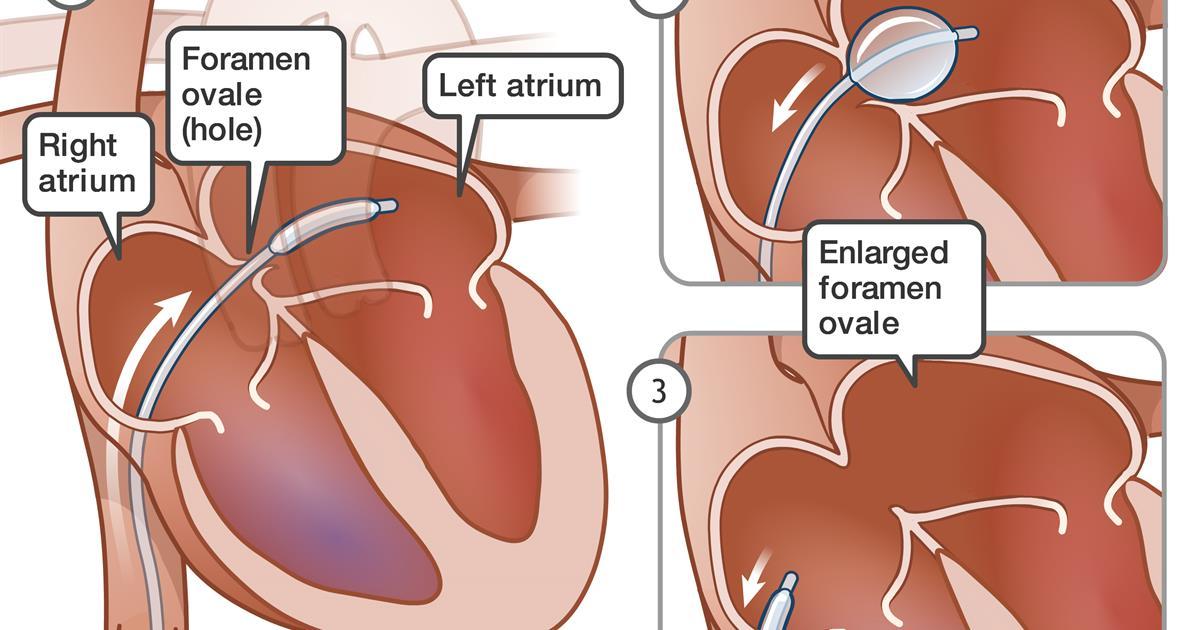Balloon Septostomy: Enhancing Cardiac Function with a Minimally Invasive Procedure
Improving Heart Health through Effective Treatment
Introduction:
Balloon septostomy is a minimally invasive procedure used to create or enlarge openings between the chambers of the heart. It is often performed to improve cardiac function in individuals with specific congenital heart defects. In this blog post, we will explore the details of balloon septostomy, including its benefits, the procedure itself, recovery process, and more.
 Understanding Balloon Septostomy
Understanding Balloon Septostomy
Balloon septostomy is a procedure performed to increase blood flow between the atria or ventricles of the heart. It is commonly used for congenital heart defects such as transposition of the great arteries or hypoplastic left heart syndrome. By creating or enlarging openings in the walls (septum) between the heart chambers, balloon septostomy helps improve oxygenated blood circulation and cardiac function.
The Balloon Septostomy Procedure
The balloon septostomy procedure generally follows these steps:
Anesthesia: The patient is given general anesthesia to ensure comfort and relaxation during the procedure.
Catheter Insertion: A small incision is made in the groin area, and a catheter (thin tube) is inserted into a blood vessel. The catheter is carefully guided through the blood vessels until it reaches the heart.
Balloon Placement: A special balloon-tipped catheter is advanced to the site of the septum that requires intervention. The balloon is positioned and inflated, creating or enlarging the opening in the septum.
Balloon Deflation and Removal: Once the desired opening is achieved, the balloon is deflated and carefully withdrawn, leaving behind an improved passage for blood flow between the heart chambers.
Benefits of Balloon Septostomy
Balloon septostomy offers several benefits for individuals with congenital heart defects, including:
Improved Cardiac Function: By increasing blood flow between the heart chambers, balloon septostomy helps optimize oxygenated blood distribution and improves overall cardiac function.
Enhanced Oxygenation: Balloon septostomy ensures that oxygenated blood can mix with deoxygenated blood, allowing for better oxygenation and circulation throughout the body.
Symptom Relief: Individuals with certain congenital heart defects may experience symptoms such as fatigue, cyanosis (bluish discoloration), and shortness of breath. Balloon septostomy can alleviate these symptoms and improve quality of life.
Minimally Invasive: Balloon septostomy is a minimally invasive procedure, which means it involves smaller incisions, reduced risks, and faster recovery compared to open-heart surgeries.
Recovery and Follow-up Care
After balloon septostomy, patients are typically monitored in a hospital setting for a brief period to ensure stability and recovery.
The healthcare team will closely monitor heart function, administer appropriate medications, and provide guidance on post-procedure care. Recovery and follow-up care may include:
Medications: Patients may be prescribed medications to manage pain, prevent infection, and support cardiac function during the recovery period.
Post-procedure Monitoring: Close monitoring of the patient's vital signs, heart function, and overall well-being will be conducted to ensure a smooth recovery.
Follow-up Appointments: Regular follow-up appointments with a cardiologist will be scheduled to monitor progress, assess the effectiveness of the procedure, and make any necessary adjustments to the treatment plan.
Lifestyle Modifications: Depending on the specific heart condition, individuals may be advised to adopt a heart-healthy lifestyle, including regular exercise, a balanced diet, medication adherence, and avoidance of tobacco and excessive alcohol consumption.
Conclusion:
Balloon septostomy is a minimally invasive procedure that can significantly improve cardiac function in individuals with congenital heart defects.
By creating or enlarging openings between the heart chambers, this procedure enhances blood flow and oxygenation, providing relief from symptoms and improving overall heart health.
If you or a loved one has a congenital heart defect requiring intervention, consult with a cardiologist to determine if balloon septostomy is a suitable treatment option.
We are associated with experienced and highly skilled medical professionals. We use the latest medical technology available in the world and we provide medical services in collaboration with JCI & NABH Certified hospitals only. Our services include various types of treatment and organ restructuring and transplant.
